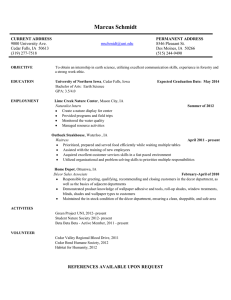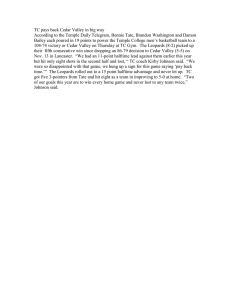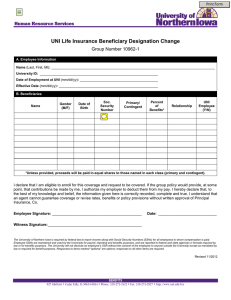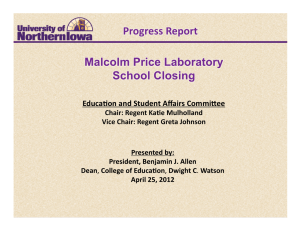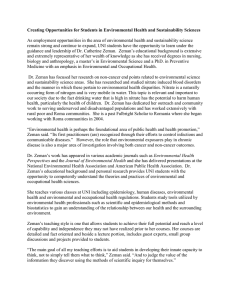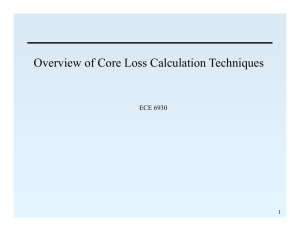Our Health and Examining the Big Picture
advertisement
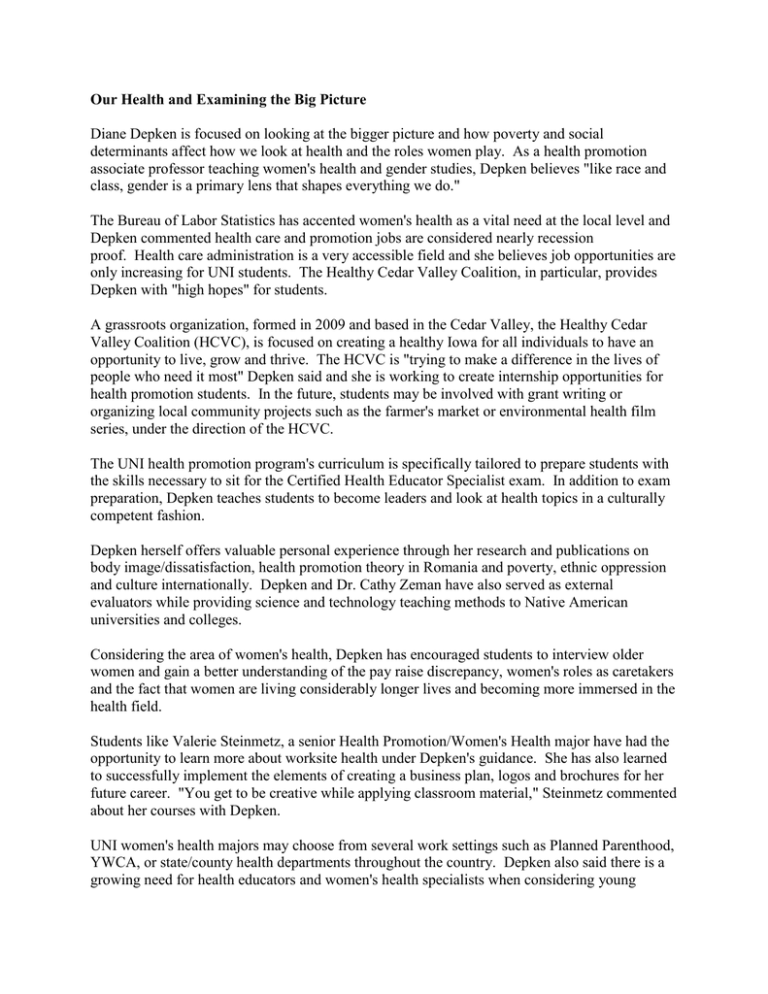
Our Health and Examining the Big Picture Diane Depken is focused on looking at the bigger picture and how poverty and social determinants affect how we look at health and the roles women play. As a health promotion associate professor teaching women's health and gender studies, Depken believes "like race and class, gender is a primary lens that shapes everything we do." The Bureau of Labor Statistics has accented women's health as a vital need at the local level and Depken commented health care and promotion jobs are considered nearly recession proof. Health care administration is a very accessible field and she believes job opportunities are only increasing for UNI students. The Healthy Cedar Valley Coalition, in particular, provides Depken with "high hopes" for students. A grassroots organization, formed in 2009 and based in the Cedar Valley, the Healthy Cedar Valley Coalition (HCVC), is focused on creating a healthy Iowa for all individuals to have an opportunity to live, grow and thrive. The HCVC is "trying to make a difference in the lives of people who need it most" Depken said and she is working to create internship opportunities for health promotion students. In the future, students may be involved with grant writing or organizing local community projects such as the farmer's market or environmental health film series, under the direction of the HCVC. The UNI health promotion program's curriculum is specifically tailored to prepare students with the skills necessary to sit for the Certified Health Educator Specialist exam. In addition to exam preparation, Depken teaches students to become leaders and look at health topics in a culturally competent fashion. Depken herself offers valuable personal experience through her research and publications on body image/dissatisfaction, health promotion theory in Romania and poverty, ethnic oppression and culture internationally. Depken and Dr. Cathy Zeman have also served as external evaluators while providing science and technology teaching methods to Native American universities and colleges. Considering the area of women's health, Depken has encouraged students to interview older women and gain a better understanding of the pay raise discrepancy, women's roles as caretakers and the fact that women are living considerably longer lives and becoming more immersed in the health field. Students like Valerie Steinmetz, a senior Health Promotion/Women's Health major have had the opportunity to learn more about worksite health under Depken's guidance. She has also learned to successfully implement the elements of creating a business plan, logos and brochures for her future career. "You get to be creative while applying classroom material," Steinmetz commented about her courses with Depken. UNI women's health majors may choose from several work settings such as Planned Parenthood, YWCA, or state/county health departments throughout the country. Depken also said there is a growing need for health educators and women's health specialists when considering young parenthood and teenage pregnancy. Locally, students are working in medical settings such as Allen or Covenant clinics. Depken is very proud of the health promotion program and the preparation it provides for students as they become increasingly competent in health and women's studies areas. She believes health courses are vital to the success of all students. "How can the brain grow and develop without a strong body?"
